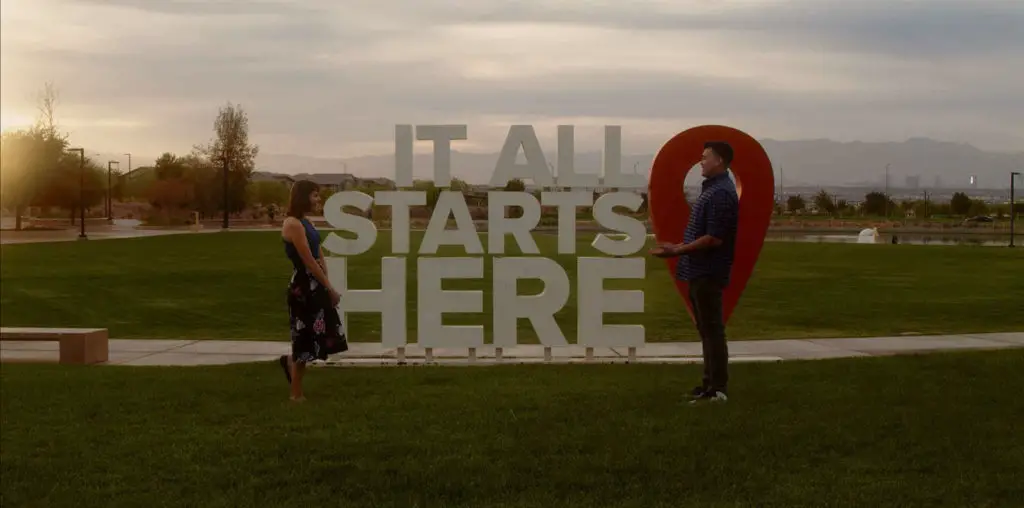
The latest in a series of emotion-laden films dealing with inspirational true stories (others in release, or about to be, include “Secretariat,” “Fair Game,” and “127 Hours”) bears an impressive cast headlined by Hilary Swank, yet with an impactful assist by Sam Rockwell, portraying blue-collar barkeep Betty Anne Waters and her wrongly imprisoned older brother Kenny, respectively. Actor/Director/Producer Tony Goldwyn (the ‘bad guy’ in 1990’s “Ghost”) spent nine years getting this project made, a devotion that is displayed proudly in every frame of “Conviction,” his fourth, and most rewarding, feature as director. This compassionate film rises above similar cable-tv fare, albeit thanks to the acting chops involved more than screenwriter Pamela Gray’s proper account of a sister’s unswerving 18-year commitment to setting her innocent free. Gray previously wrote the autobiographical script for “A Walk on the Moon,” Goldwyn’s first feature behind the camera.
In the early 1980s the Commonwealth of Massachusetts convicted Kenny Waters to a lifetime behind bars, for the brutal murder of a neighbor. Deprived of her sibling and best friend, the under-educated Betty Anne pulls up her bootstraps and earns high school, college, and law degrees in an effort to get him released. Told in fragmented, semi-linear order, Goldwyn nicely captures the brother-sister camaraderie as mischievous children growing up in Ayer, short-fused Kenny’s suicidal fits of depression throughout his long jail term, and jumbles in scenes in which Betty Anne’s own husband and children question her singular obsession at their expense, particularly when she reneges on an important family fishing trip. Along the long road to freedom, there are stumbles courtesy of gruff police officer Nancy Taylor (the marvelous Melissa Leo) and blessings thanks to the thoughtfulness of fellow law student Abra Rice (Minnie Driver). While you would expect it to be a typical DNA-mismatch outcome, the Innocence Project’s Barry Scheck (portrayed by Peter Gallagher) helps spearhead the ultimate reversal at injustice’s hand, and then provides the evidence that unveils the corruption that covered up the whole mess.
Swank, also an executive producer, lives and breathes strong characters, ever since her breakthrough, award-winning portrayal of Brandon Teena in “Boys Don’t Cry” a decade ago. In 2005, she again won an Oscar in Clint Eastwood’s boxing drama “Million Dollar Baby.” Although her 2009 portrayal of Amelia Earhart fell mostly on deaf audiences, with “Conviction” she forcefully creates a likable stubborn mule with a Massachusetts accent. As for Sam Rockwell, I’ve been a fan for over a decade, first remembering him as the child murderer ‘Wild Bill’ Wharton in Frank Darabont’s fine adaptation of Stephen King’s prison-based drama “The Green Mile,” which I assume Rockwell flashed back upon while filming “Conviction.” His performance back then still represents one of the screen’s best incarnations of evil. The great thing about him (aside from him liking, as I do, good craft beers) is how he can move easily between comedy, drama, and melodrama. Take a look at him for comic effect in 1999’s “Galaxy Quest,” one of the most endearing sci-fi comedies ever made, or in last year’s moody lunar effort “Moon.” His role as Kenny may play to type, but, like Swank, he elevates the character above the story, whether in pre-prison flippancy mode, delivering the line “Take it easy there, Angie Dickinson” to an arresting officer, being his attempt to offset the seriousness of the situation. Or putting in a few hot-headed punches, emotional and physical, while serving his too-long sentence. Juliette Lewis has a brief role as you have never seen her before, nearly unrecognizable in a racist wardrobe.
Goldwyn handles his cast admirably in this genuine effort to keep his audience entertained, informed, riled up, and pissed off with our justice system. There’s still too much unfairness in the world, which makes the compelling “Conviction” worthy of your time and your heart. It’s a story of personal survival, more so as the real Betty Anne continues to carry on a conviction to fight for others wrongfully imprisoned. The importance of a good education is one of the film’s less obvious statements. (Check out “Waiting for ‘Superman'” for more on that depressing story.) “Conviction” has its world-shattering (and predictable) moments, but audiences love small victories like this one.

